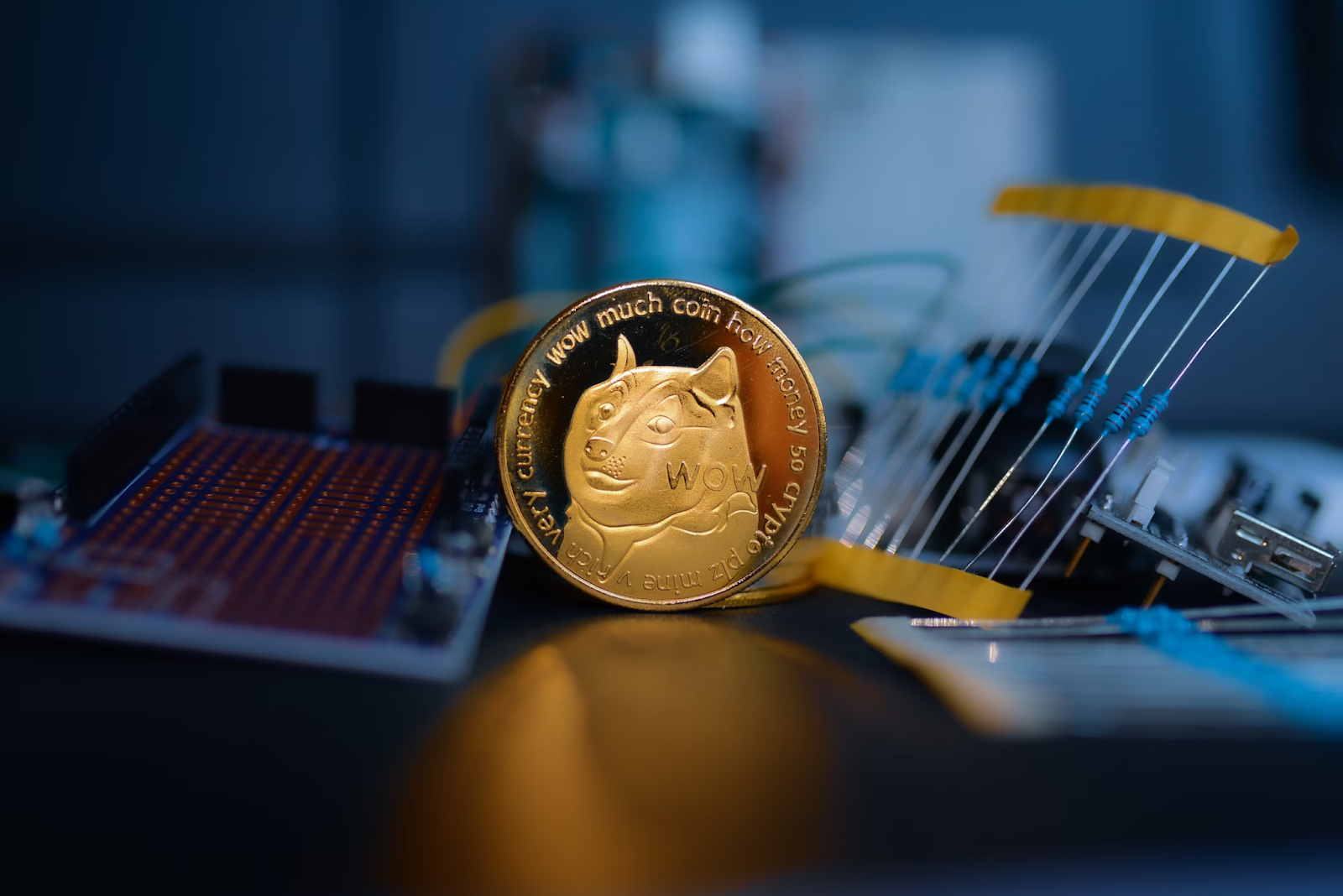In a move emblematic of a significant shift in the automotive and corporate world, Honda, the Japanese automobile titan, has embraced the world of cryptocurrencies. The company's latest payment methods signal a renewed faith in digital currencies, with a particular spotlight on the ever-viral meme coins.
Let's explore some more.
Honda's Drive Into the Digital Age
Partnering with the innovative blockchain payment system FCF Pay, Honda has given its customer base a chance to 'Drive Into the Future' using cryptocurrencies. This collaboration, undoubtedly progressive, allows Honda enthusiasts to lease or purchase the company's range of products, be it automobiles, motorcycles, or power equipment using various digital assets. The result means XRP and Shiba Inu (SHIB), will now be acceptable as viable payments --- and if you check out binance.com, you'll see both coins are doing relatively well.
While mainstream cryptocurrencies like Bitcoin (BTC) and Ether (ETH) are included in the payment options, what's stirring conversations are Honda's selections of meme-inspired coins. The roster includes some of the most popular meme coins, such as Ripple's XRP, Bone ShibaSwap (BONE), Shiba Inu (SHIB), Floki Inu (FLOKI), Pepe Coin (PEPE), Doge Killer (LEASH), and many others.
The rise of meme coins --- despite their light-hearted origins --- has been nothing short of meteoric. The popularity can be gauged from the fact that Dogecoin (DOGE), Elon Musk's once-declared favorite and originally a satirical take on cryptocurrencies, now boasts a market cap exceeding $8.6 billion.
Broadening Horizons for XRP and SHIB
Honda's decision is not isolated. The adoption of these cryptocurrencies, especially XRP and SHIB, has been on an upward trajectory in various sectors. Just recently, FCF Pay's collaboration with Texas-based Chariot Energy empowered locals to settle their solar panel bills using the aforementioned meme coins. Additionally, these tokens are increasingly becoming a staple in international commerce, signifying their growing legitimacy and user base.
Retailers, online platforms, and even travel agencies are gradually accepting these coins, further solidifying their position in the mainstream economy. This wave of adoption doesn't stop at energy companies.
Banking giant HSBC, headquartered in the UK, now allows its customers to settle mortgages and loans using cryptocurrencies, including XRP and SHIB, through a strategic alliance with FCF Pay. Their endorsement by such established institutions signals a promising future and a potential shift in the global financial ecosystem.
Other Major Companies Embracing Crypto
The movement towards cryptocurrency isn't limited to Honda. FCF Pay's new service, FCF Crypto Bills, facilitates the holders of Shiba Inu and XRP to conveniently settle bills across a massive network of over 20,000 US corporations. That service, while presently available only to US residents, is poised for an international expansion, further amplifying the global reach of digital assets.
Companies like AMC Theaters, AirBaltic, and e-commerce giant Newegg have already incorporated XRP into their payment methods, while Shiba Inu garners acceptance at over 80,000 Jeripay locations in Singapore and can be used on platforms like Amazon, Netflix, and major airlines like American Air and Air Canada.
Such an embrace of cryptocurrencies is a testament to their potential to revolutionize traditional payment systems. As digital transactions become the norm, these companies recognize the value of offering more flexible payment options to their global customer base.
Luxury brands like Lamborghini and Bugatti also made headlines when they started accepting Bitcoin as payment for their high-end vehicles. Major online platforms, including Microsoft and PayPal, have shown support for cryptocurrencies, allowing users to make purchases or even hold and sell digital currency. This widespread acceptance across different industries not only boosts the credibility of cryptocurrencies but also promotes innovation in the financial sector.
With increasing awareness and acceptance, the future seems bright for cryptocurrencies, and the trend suggests that more major corporations will likely join the crypto bandwagon soon. The move by these companies is more than just a nod to the tech-savvy; it's a strategic decision to stay relevant and ahead in an ever-evolving digital world.
The Potential Economic Impact of Crypto Adoption
The incorporation of cryptocurrencies into mainstream business models is more than just a technological advancement; it's a clear signal of the evolving economic landscape. While skeptics once viewed digital currencies as volatile and transient, their growing adoption by established corporations is challenging this narrative.
Economists and financial experts have begun to speculate on the long-term implications of such widespread crypto acceptance. Some argue that as businesses continue to integrate these digital currencies, there could be a potential shift in global economic power dynamics. For instance, countries that are early adopters and promoters of cryptocurrency infrastructure might find themselves at a strategic advantage in the coming decades.
Moreover, as digital currencies facilitate cross-border transactions with reduced fees and faster processing times, international trade and investments could see a significant boost. Companies might find it more feasible to expand operations or tap into global markets, leading to an interconnected and more fluid global economy.
However, with the potential benefits also come challenges. The decentralized nature of cryptocurrencies can pose regulatory and security concerns. Governments and financial institutions will need to strike a balance between fostering innovation and ensuring consumer protection.
As we stand on the brink of this financial evolution, one thing is clear: the decisions made by major companies today will shape the economic stories of tomorrow.
Honda's recent inclusion of meme coins and digital assets heralds an era where traditional financial norms are getting increasingly intertwined with the dynamic world of cryptocurrencies. This trend underscores not just the financial potential of these assets, but also the shifting paradigms of global businesses towards a more digital future.
